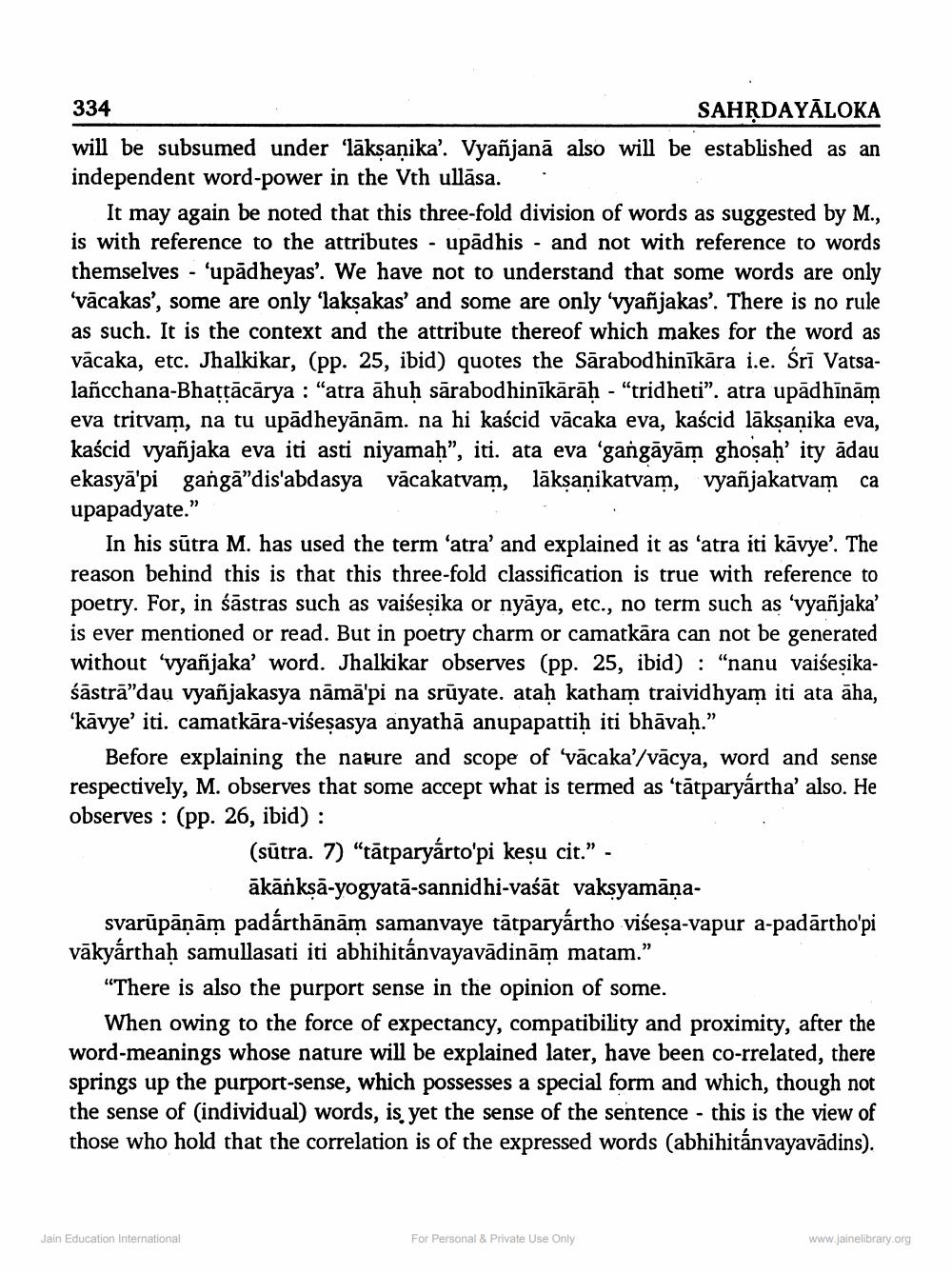________________
334
SAHRDAYĀLOKA will be subsumed under 'lākṣaṇika'. Vyañjanā also will be established as an independent word-power in the Vth ullāsa. .
It may again be noted that this three-fold division of words as suggested by M., is with reference to the attributes - upādhis - and not with reference to words themselves - 'upādheyas'. We have not to understand that some words are only 'vācakas', some are only 'laksakas' and some are only 'vyañjakas'. There is no rule as such. It is the context and the attribute thereof which makes for the word as vācaka, etc. Jhalkikar, (pp. 25, ibid) quotes the Sārabodhinīkāra i.e. Sri Vatsalañcchana-Bhattācārya : "atra āhuḥ sārabodhinīkārāḥ - “tridheti”. atra upādhīnām eva tritvam, na tu upādheyānām. na hi kaścid vācaka eva, kaścid lākṣanika eva, kaścid vyañjaka eva iti asti niyamah”, iti. ata eva 'gangāyām ghosah' ity ādau ekasyā'pi gangā"dis'abdasya vācakatvam, lākṣaṇikatvam, vyañjakatvam ca upapadyate.”
In his sūtra M. has used the term 'atra' and explained it as 'atra iti kāvye'. The reason behind this is that this three-fold classification is true with reference to poetry. For, in śāstras such as vaiseșika or nyāya, etc., no term such as 'vyañjaka' is ever mentioned or read. But in poetry charm or camatkāra can not be generated without 'vyañjaka' word. Jhalkikar observes (pp. 25, ibid) : “nanu vaiśeșikaśāstrā”dau vyañjakasya nāmā'pi na srūyate. atah katham traividhyam iti ata āha, ‘kāvye’ iti. camatkāra-viśeșasya anyathā anupapattiḥ iti bhāvaḥ.”
Before explaining the nature and scope of 'vācaka'/vācya, word and sense respectively, M. observes that some accept what is termed as ‘tātparyártha' also. He observes : (pp. 26, ibid):
(sūtra. 7) “tātparyárto'pi keșu cit.” -
ākānkşa-yogyatā-sannidhi-vaśāt vaksyamāņasvarūpāņām padárthānām samanvaye tātparyártho višeșa-vapur a-padārtho'pi vākyárthaḥ samullasati iti abhihitánvayavādinām matam.”
“There is also the purport sense in the opinion of some.
When owing to the force of expectancy, compatibility and proximity, after the word-meanings whose nature will be explained later, have been co-rrelated, there springs up the purport-sense, which possesses a special form and which, though not the sense of individual) words, is yet the sense of the sentence - this is the view of those who hold that the correlation is of the expressed words (abhihitánvayavādins).
Jain Education International
For Personal & Private Use Only
www.jainelibrary.org




